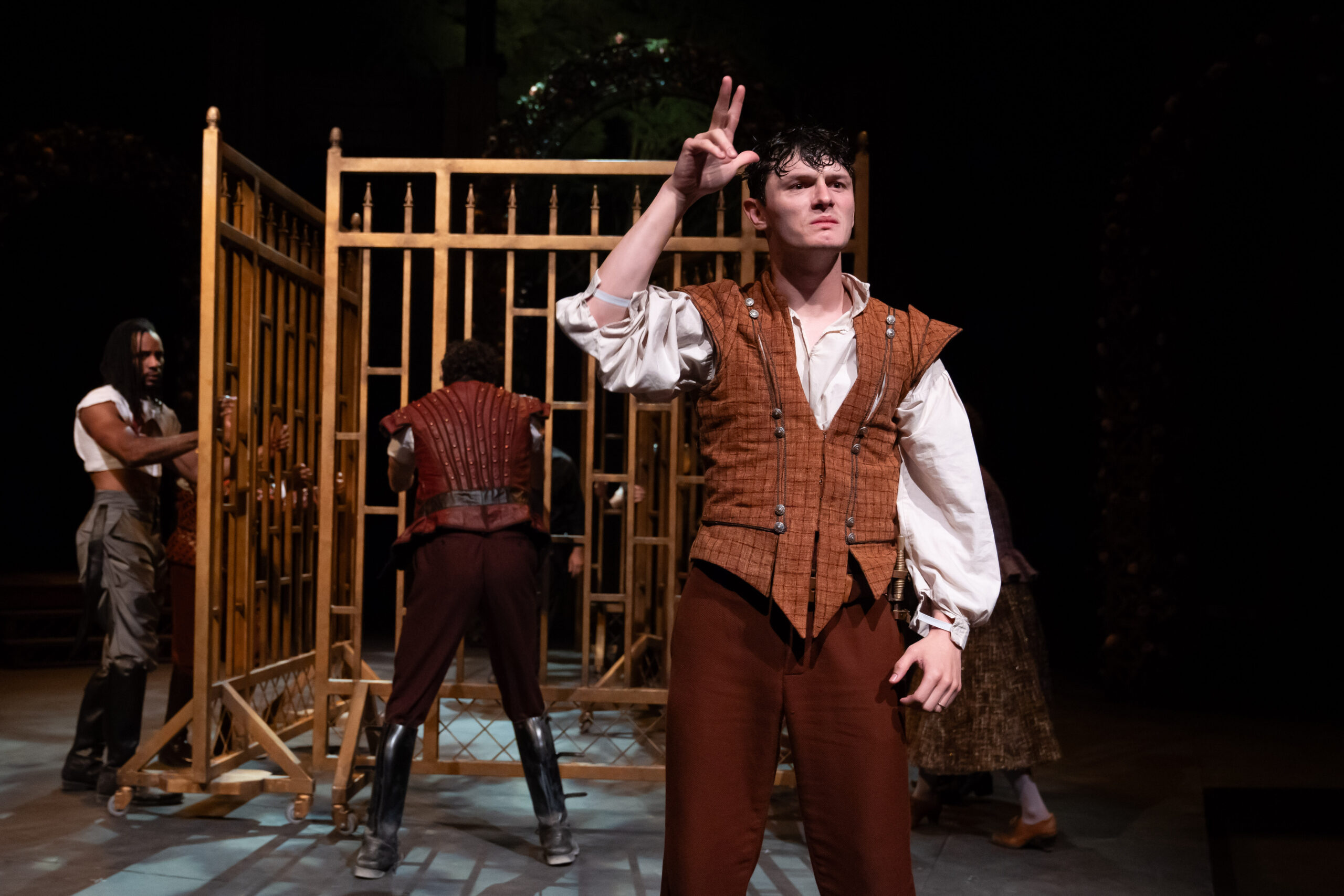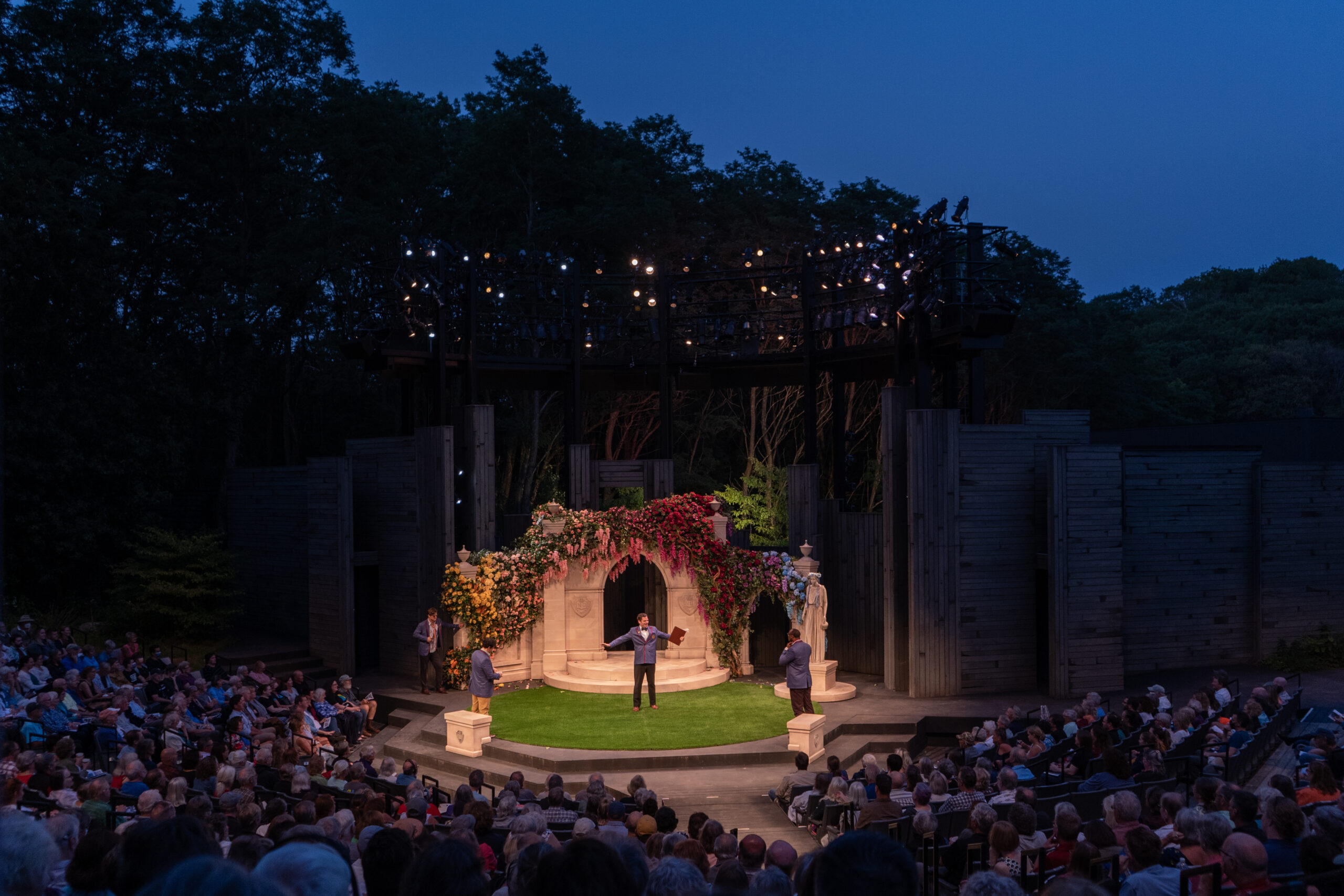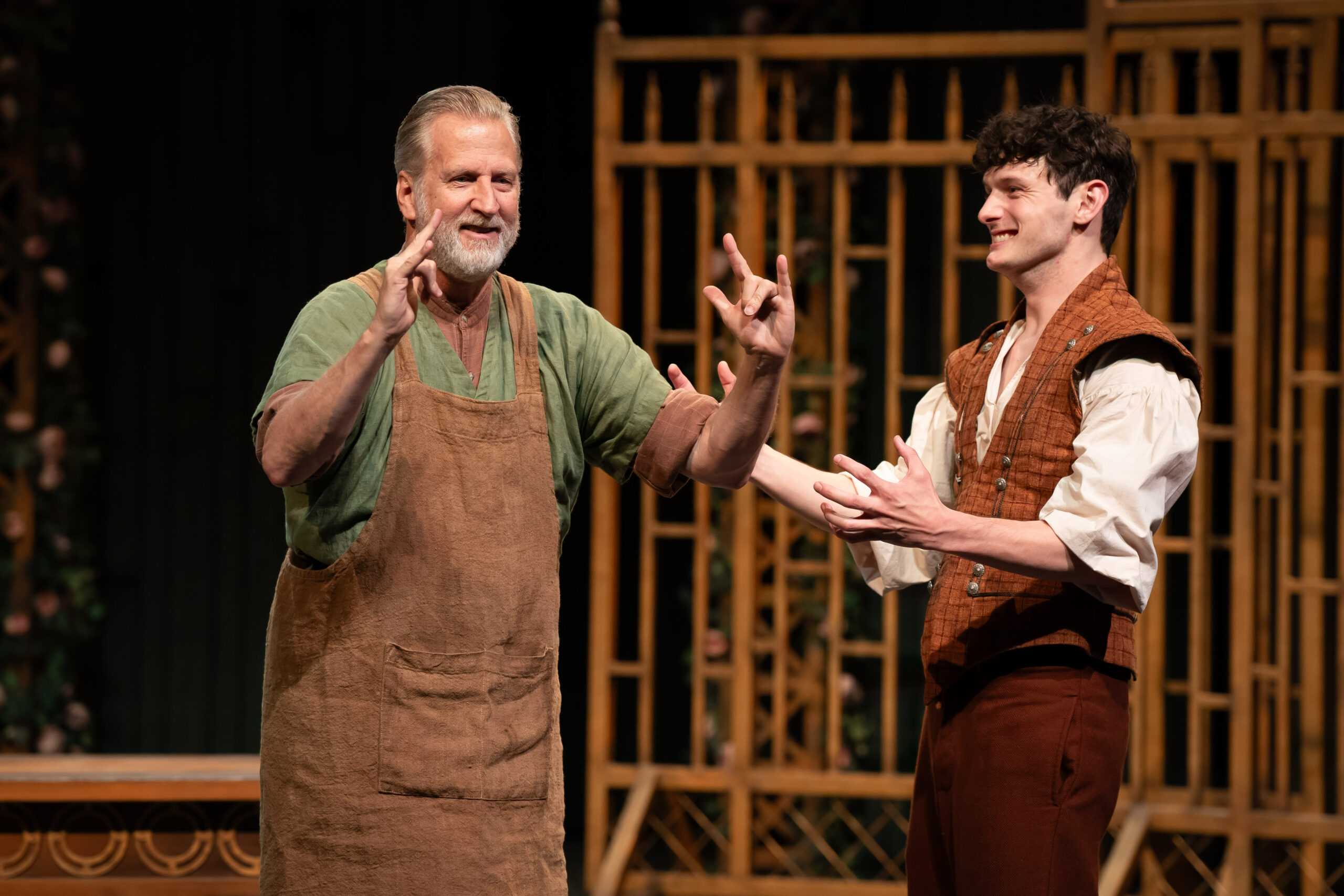“Silence is the perfectest herald of joy,” writes Shakespeare in Much Ado About Nothing. The playwright who defined modern English, oddly enough, knew that words were only half the story.
Wisconsin’s American Players Theatre (APT) has taken this sentiment to heart. Set in the hills of rural Spring Green, roughly an hour from Madison, the classical venue is creating performances, events, and audience experiences with and by deaf artists, reimagining how theatre tells everyone’s story.
In 2023, APT produced Romeo & Juliet, but with a twist: Actor Josh Castille played Romeo, and Robert Schleifer played Friar Lawrence—both deaf performers. “I only did Romeo & Juliet that year,” says Castille, “and Brenda [DeVita] and I had a conversation—what would it mean to have me for a whole season?”

And the gears started turning. In 2025, the repertory theatre will showcase the whole spectrum of deafness: Castille returns for Tribes, a story of a deaf son in a hearing family, and to play Puck in A Midsummer Night’s Dream. It’s not theatre for deaf audiences, Castille clarifies—it’s theatre including deaf artists.
That, coincidentally, makes it more accessible to all: Shakespeare is dense for any theatre-goer, hearing or otherwise, and utilizing ASL (American Sign Language) helps with storytelling, making it both more multidimensional and more digestible.
“Every show, I’m used to finding the cracks in the story and slipping in justification for why this person is deaf,” says Castille. “What’s lovely about Midsummer is that we’re not justifying the deafness. We’re letting Puck be Puck, letting him just exist as this nuanced person, because everyone is that way.”
Brenda DeVita, Artistic Director, American Players Theatre“We used to say that it was our endeavor to create plays for everyone. That we’re touching on a universal experience. But all the people looked like us and lived like us. We weren’t being proactive and insistent on our integrity.”

APT is also running an ASL immersion weekend, August 22-24, 2025. In addition to full ASL interpretation of Tribes and Midsummer, pre-show talks with deaf translators will discuss adapting Shakespeare, and an open “ASL Slam” stage call invites deaf audience members to perform at a partner venue.
For these shows, captioning services (via GalaPro) will be available, making the text available in real time, on any device, including smartphones. APT started utilizing the service in 2023, making performances accessible for the deaf or hard of hearing—or simply those who wish Shakespeare had subtitles.
APT doesn’t have a term for what it is they’re doing. There was no plan to turn Shakespeare on its heels or break ground via accessibility work.
“We used to say that it was our endeavor to create plays for everyone. That we’re touching on a universal experience,” says Brenda DeVita, artistic director. “But all the people looked like us and lived like us. We weren’t being proactive and insistent on our integrity.”
So, staff started seeking out new ways to tell the human story. “Luckily,” says DeVita, “our audience moves with us because they trust us, and the artists that come to work with us move with us because they trust us. We move at the speed of trust.”
Of course, a widened perspective is only part of good storytelling. “The reason we’re doing it,” says Sara Young, managing director, “is because it makes the stories better. It simply makes them richer for our audiences.”
